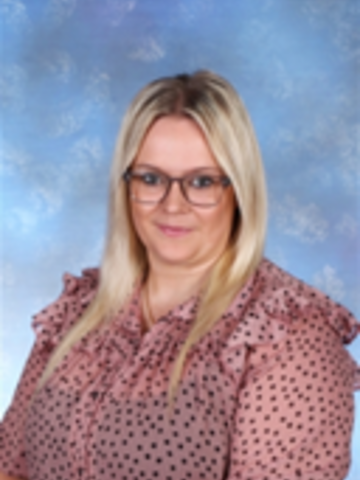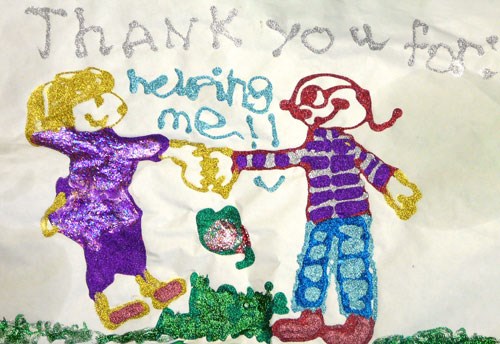The SEND Team at Black Firs
.jpg)
Anna Jones
SENDCO
Headteacher, Designated Safeguarding Lead

Kirsty Bibby
Adaptive Practice Lead
Year 3 & 4 Teacher
Additional SEND support is also available from the School Office - office@black-firs.co.uk
Aim
To give every child the experience of success in learning and to achieve as high a standard as possible in an effective learning environment where children are motivated to learn and feel important.
Definitions
Children have special educational needs if they have a learning difficulty that calls for special educational provision to be made for them.
Children have a learning difficulty if the child
- is progressing significantly behind that of their peers starting from the same baseline
- fails to match or better that of their previous rate of progress
- fails to close the attainment gap between the child and their peers
- widens the attainment gap
It can include areas other than attainment — for instance where a child needs to make additional progress with wider development or social needs in order to make successful transition to adult life.
Children must not be regarded as having a learning difficulty solely because the language or form of language of their home is different from the language in which they will be taught.
Parental Partnership
We have an 'open door' approach for parents, allowing them to access teachers and the SENDCo wherever possible. This may be a discussion at the end or start of the day (where appropriate), telephone conversations, emails, and more structured appointments when requested. It is key that parents, teachers and the SENDCo work together to support the needs of children.
Benefits to the School
A successful inclusion programme constitutes a genuine attempt to tackle equal opportunities by challenging stereotypes and confronting prejudice. Amongst all children it helps create an awareness of special needs in the context of the familiar rather than something that happens out there, to strange people, in strange places.
It leads to a greater awareness of personal and social responsibility and most importantly fosters a climate of achievement where everybody is expected to tackle everything.
What happens in school?
High Quality First Teaching- We pride ourselves on our quality first teaching which includes many techniques, strategies and support tools that would often be classed as 'additional support'.
- Adapting the delivery of our curriculum, staffing & resources to ensure all children are able to access learning, for example, giving longer processing times, pre-teaching of key vocabulary, reading instructions aloud, etc
- Differentiation, if required, to meet the abilities of all the children in the class, special needs intervention is where a child's needs cannot be met within current adaption strategies. When this is the case a teacher will aim to differentiate for a child and / or seek further advice in ways to effectively support a child - this advice may come from the SENDCo or other agencies (eg: eCP, SaLT, CEAT, EP etc)
- Support for children through:-
- High quality first teaching that every child is entitled to.
- Differentiation though work, support and resources.
- Group intervention for groups who, with a little help, can catch up with their peers.
- Support and advice given by outside agencies such as 'The Cheshire East Autism Team' and Educational Psychologists.
- All interventions and support is individualised, it will fit to the needs of the child; they will change and develop as and when the child's needs change.
- Play Therapy is offered in School via eCP
Admission of children with SEND
Children with Statements are outside admission arrangements and are allocated a place at the school named in the Statement, regardless of oversubscription, in accordance with Section 324 of the Education Act 1996 which requires the governing bodies of all schools to admit the child if the School is named in the Statement. See admissions policy.
Our SEND policy, Accessibility Plan and Local Offer can be found below.
Supporting Emotional Health and Wellbeing
http://www.playtherapy.org.uk/

“You can discover more about a person in an hour of play than in a year of conversation” - Plato
Although the benefits of play therapy for children are well established, it is still uncommon for a primary school to have a play therapist attached to the school. At Black Firs we are proud to be able to offer this service to our children should the need arise.
Play therapy offers the child a relationship that gives them someone separate to talk to and be with regularly; who can give them time, privacy and listening; who is focused on the child and works to understand how they see things and how they feel about what is happening for them.
Children work with a mixture of media and toys which include, but is not limited to:
- Sand tray and miniatures
- Arts and crafts
- Puppets
- Stories and role play
- Musical instruments
- Creative visualisation / relaxation
Sometimes a specific activity may be introduced to help the child if it is felt to be appropriate. What ever they are doing, the relationship between the play therapist and child is the most important aspect - as trust develops, the child can feel safe in their sessions and will be able to express themselves more freely.
Referrals can be made through your child’s class teacher or the schools SENCO.
Further information can also be accessed at http://www.cheshireplaytherapy.co.uk/